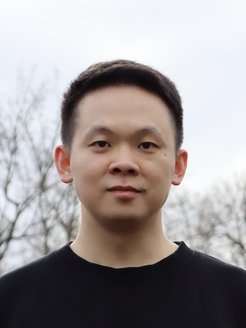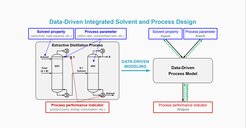Introducing one of our doctoral researchers: Zihao Wang
Zihao Wangs scientific focus is on combining machine learning and process systems engineering methods to reinvent solvent and material design for energy-efficient chemical separation processes.

We would like to introduce Zihao Wang, one of our PhD researcher, who joined the IMPRS program in October 2020.
He was introduced to the IMPRS program by one of our alumni, Prof. Teng Zhou, who also is his current mentor. When he then looked into the IMPRS program, he came to the conclusion that the research topics in the Process Systems Engineering Group fit his research interests well.
Zihao Wang is now working in the Process Systems Engineering Group under the supervision of Prof. Dr.-Ing. Kai Sundmacher, where his scientific focus is on combining machine learning and process systems engineering methods to reinvent solvent and material design for energy-efficient chemical separation processes.
Chemical separation accounts for 10-15% of the world's energy consumption. To improve energy efficiency, computer-aided molecular and process design (CAMPD) methods have been developed to optimally design separating agents (e.g., solvents and adsorbents) and corresponding processes (e.g., distillation and adsorption). As advanced molecular property models and process models are embedded, the CAMPD task is an expensive optimization problem. By taking advantage of machine learning techniques, surrogate models can be developed in a data-driven manner to replace the complex physically-based models involved in the CAMPD framework. This can substantially reduce the complexity of the optimization problem and enable efficient CAMPD. For instance, by investigating how solvent properties and process parameters affect the performance of an extractive distillation (ED) process, data-driven process models can be established. On this basis, multi-objective optimization is performed to obtain the optimal solvent properties and corresponding optimal process parameters based on a set of objective functions and constraints. Subsequently, optimal solvents approximating the optimal property profiles are identified from a large solvent database. The performance of the optimal solvents and corresponding process parameters can be evaluated by rigorous simulations of the ED process. In addition, chemical hazard assessments and economic evaluations can be considered to support the final decision-making.

When we asked Zihao Wang about what he enjoys about Magdeburg, he highlighted the city's peaceful atmosphere, due to it not being crowded, and ample quiet spaces, particularly on weekends. Additionally, he finds the colourful sunsets and bright stars at night to be especially enjoyable.
This is his first time leaving his home country, which itself is an exciting experience. The trip went well, except for a cancellation of the train from Frankfurt to Magdeburg, which caused him to arrive two hours later at the Max-Planck-institute than expected. Despite this obstacle, he considers his first international trip a success!
He finds the PhD advisory committee (PAC) of the IMPRS Program to be highly beneficial in supporting his research. Along with his main supervisor, the PAC provides an additional supervisor who offers a different perspective and a mentor who is available for timely support and discussion. The German courses offered by IMPRS helped him a lot in overcoming language barrier and immerse himself in the local culture. In addition, the IMPRS organized various events, such as summer schools and workshops, to promote interaction among fellows, which he believes has strengthened their relationships.
In conclusion, he would highly recommend the program to other researchers who are looking for PhD opportunities.
We would like to end this article with personal advice from Zihao Wang: “Starting a PhD in a new country is usually painful at first. So always stay positive and optimistic about the future, the road ahead will be worth it”.













